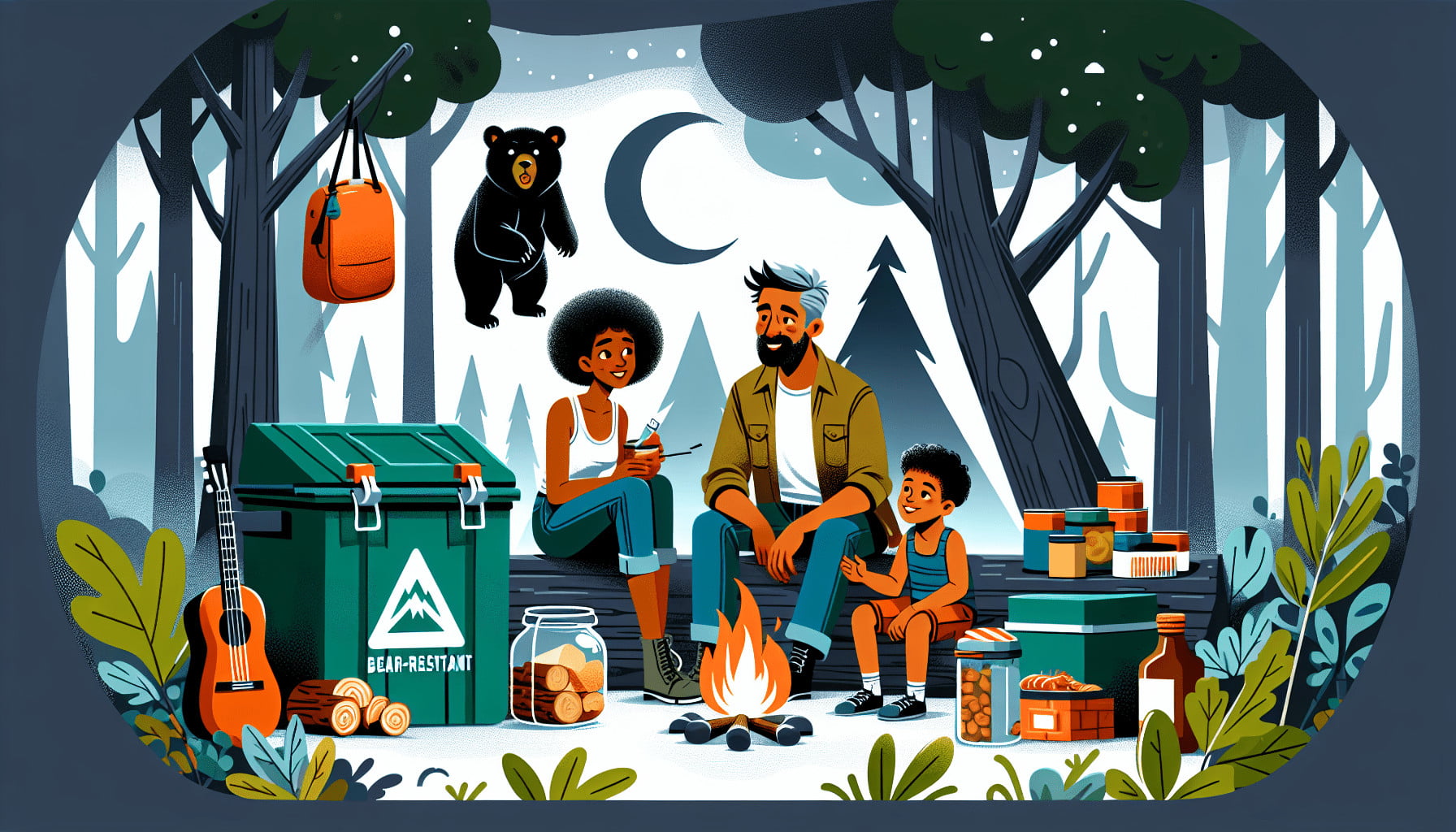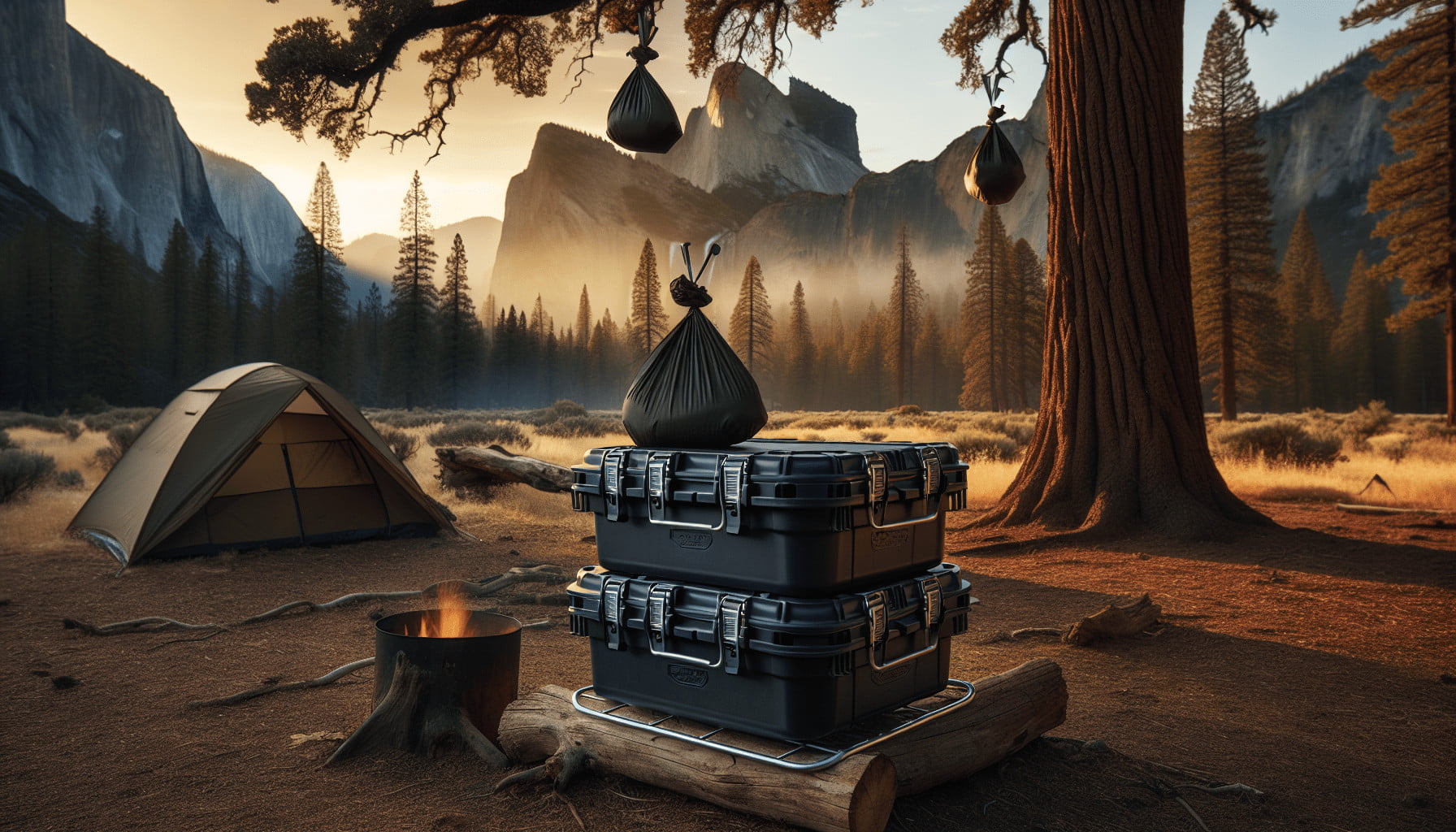When you’re out in the great outdoors, camping under the stars, the last thing you want is a hungry bear rummaging through your food supplies. Keeping your food safe from wild animals while camping is not only crucial for the animals’ wellbeing, but also for your own safety. From storing food properly to using bear-resistant containers, this article will provide you with essential tips and tricks to ensure that your camping experience remains wildlife-friendly and enjoyable.

Choosing the Right Campsite
When it comes to camping, choosing the right campsite can make a big difference in keeping your food safe from wild animals. Researching the campsite beforehand is essential to ensure you select a location that is less likely to attract wildlife. Look for campsites that have a good reputation for being away from wildlife habitats and have a low incidence of animal encounters.
Researching the campsite
Before heading out on your camping trip, take some time to research the campsite. Look for reviews and recommendations from other campers to get a sense of any past encounters with wildlife. It’s also a good idea to check with the park rangers or campsite staff for any specific information or guidelines regarding wildlife in the area. The more knowledge you have about the campsite, the better equipped you’ll be to choose a safe location for your food.
Choosing a campsite away from wildlife habitats
When setting up your campsite, it’s important to choose a location that is away from wildlife habitats. Look for areas that are open and devoid of dense vegetation or areas with signs of animal activity such as tracks or droppings. Avoid camping near game trails or areas where animals are likely to frequent. By selecting a campsite away from wildlife habitats, you reduce the chances of attracting animals to your food.
Avoiding campsites near water sources
While camping near a water source may seem appealing, it’s best to avoid setting up your campsite too close to rivers, lakes, or streams. These areas are often frequented by wildlife, including bears and other animals that are attracted to the water source. By camping away from water sources, you reduce the likelihood of wildlife coming into your campsite in search of food.

Considering a campsite with bear lockers or food storage boxes
Some campsites are equipped with bear lockers or food storage boxes specifically designed to keep your food safe from wildlife. These lockers are usually made of sturdy metal and are bear-resistant, making them an excellent option for storing your food overnight. If the campsite you choose has these lockers or boxes available, be sure to utilize them to keep your food secure and out of reach from animals.
Selecting a campsite with a clear line of sight
When choosing a campsite, look for a location that has a clear line of sight. This means selecting an area where you can easily see your surroundings to detect any wildlife approaching your campsite. Clear sightlines allow you to have a better understanding of your surroundings and provide an opportunity to take action if any animals are approaching. It’s always better to choose a campsite where you have a clear view and can monitor potential wildlife activity.
Storing Food Properly
Properly storing your food is crucial when camping to prevent any unwanted wildlife encounters. The following tips will help you keep your food safe and secure during your trip.
Using airtight containers and sealable bags
When packing your food items, it’s important to use airtight containers and sealable bags. These containers create a barrier that helps to prevent food odors from escaping, which can attract wildlife. Opt for durable and tightly sealed containers to ensure your food remains protected and odor-free.
Utilizing bear canisters or bear bags
In areas where bears are prevalent, it’s often required to use bear canisters or bear bags to store your food. These specially-designed containers are made to be bear-resistant and are an effective way to keep your food safe. Bear bags are typically hung from a tree branch at least 10 feet off the ground and 4 feet away from any vertical support. Bear canisters, on the other hand, are heavy-duty containers that are designed to be bear-proof and can usually be rented from local outdoor stores or obtained from park rangers.
Hanging food from a bear pole
If bear canisters or bear bags are not available, hanging your food from a bear pole is another option. A bear pole is a tall metal pole specifically designed to hang food and other scented items out of reach from wildlife. When hanging your food, be sure to use a strong rope or cord and secure it tightly to the pole. It’s recommended to hang the food at least 10 to 15 feet off the ground and 4 to 6 feet away from the pole to ensure it is unreachable by animals.
Storing food in a locked vehicle
If you have access to a vehicle, storing your food inside the locked vehicle can be an effective way to keep it safe from wildlife. Make sure all doors and windows are securely closed, and consider placing a tarp or blanket over the food to further conceal any odors. It’s important to note that this method may not be suitable in areas with a high bear population, as bears are known to break into vehicles in search of food.
Keeping food away from tents and sleeping areas
To minimize the risk of wildlife encounters, it’s essential to keep your food away from your tents and sleeping areas. Animals have a strong sense of smell and can easily detect food, even from a distance. By keeping your food separate from your sleeping quarters, you reduce the chances of animals being attracted to your tents and potentially causing damage or a dangerous situation. Consider designating a specific area for food storage, away from where you sleep.
